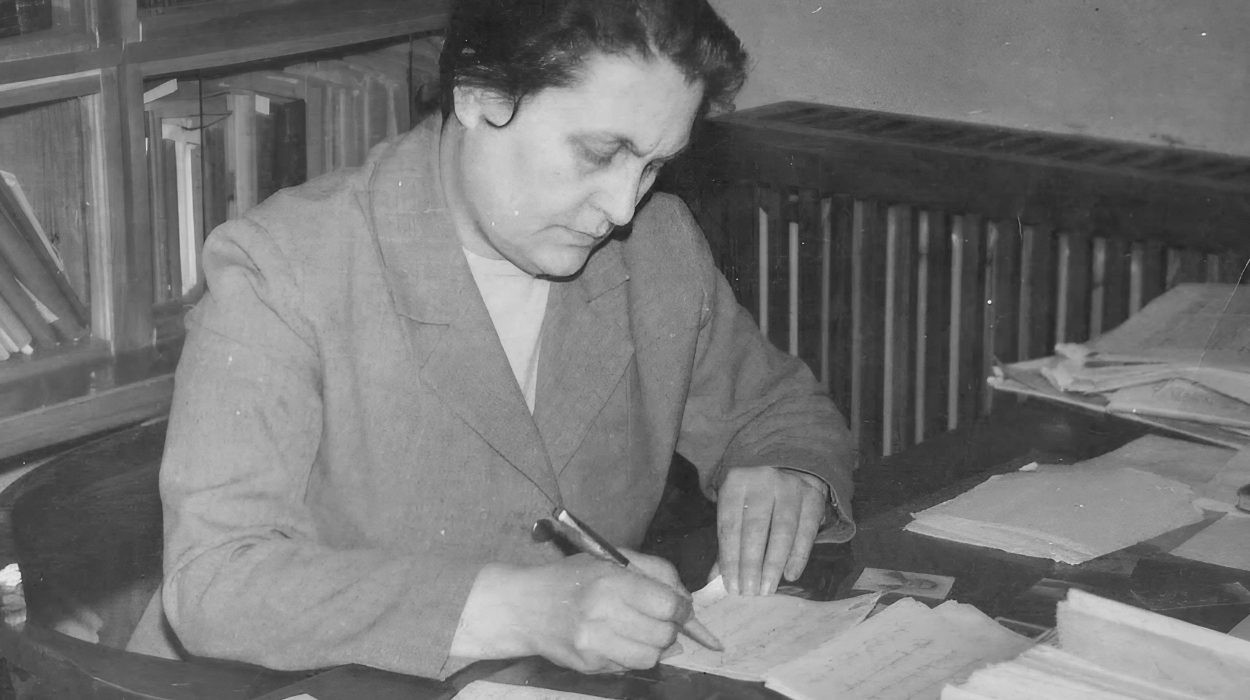On some issues of ethnic identity and placement of the Abkhazians (Regarding the work of P. Ingorokva 'Giorgi Merchule'), by Ketevan Lomtatidze

Ketevan Lomtatidze (1911 – 2007) was a Georgian linguist, Caucasiologist, specialist in Kartvelian and Abkhaz studies.
![აფხაზთა ვინაობისა და განლაგების ზოგიერთი საკითხის
შესახებ: [რეც. წიგნზე: პ. ინგოროყვა „გიორგი მერჩულე“. -
თბ., 1954] // მნათობი. - 1956. - №12. - გვ. 132-139. On some issues of ethnic identity and placement of the Abkhazians (Regarding the work of P. Ingorokva 'Giorgi Merchule'), by Ketevan Lomtatidze](/aw/images/stories/books/mnatobi_1956_no_12.jpg) On some issues of ethnic identity and placement of the Abkhazians (Regarding the work of P. Ingorokva 'Giorgi Merchule')
On some issues of ethnic identity and placement of the Abkhazians (Regarding the work of P. Ingorokva 'Giorgi Merchule')
აფხაზთა ვინაობისა და განლაგების ზოგიერთი საკითხის შესახებ: [რეც. წიგნზე: პ. ინგოროყვა „გიორგი მერჩულე“.)
Author: Ketevan Lomtatidze
Year: 1956
Place of Publication: Tbilisi
Published by: Mnatobi No:12
Number of pages: 8 [pp. 132-139.]
Language: Georgian
In his 1954 book titled 'Giorgi Merchule', Pavle Ingorokva claim that the Abkhazians of medieval and ancient western Transcaucasia were not the same people as the contemporary Abkhazians, but rather a Georgian tribe speaking a Kartvelian language. In his words (p. 116):
"The territory of Abkhazia at the time of the foundation of the “Kingdom of the Abkhazians” [Ingoroq’va’s scare quotes], that is, in the 8th century, was inhabited by Georgian tribes, and not only then, but throughout ancient history, Antiquity and the Middle Ages. The Abkhazians and other tribes dwelling in Abkhazia (Absilians, Misimians, Sanigians) were likewise purely Georgian tribes, of Georgian origin and speaking a Georgian [Kartvelian] dialect."
At that time, Ingorokva was criticised by notable scholars, including esteemed Abkhazologist Ketevan Lomtatidze, along with Nikoloz Berdzenishvili, Varlam Dondua, Georgy Soselia, Khukhut Bgazhba, and Zurab Achba [Anchabadze] among Georgian and Abkhaz scholars.
In her critique of Ingorokva, Ketevan Lomtatidze affirms the deep-rooted presence of the Abkhazians in their historical homeland, emphasizing their long-standing princedoms and distinct cultural identity and language. She mentions that the Abkhazians have made substantial contributions to the cultural heritage of Georgia. Their songs, dances, and oral traditions are an essential component of the cultural mosaic of the Caucasus.
Lomtatidze characterizes the history of Abkhazia by its persistent struggle to preserve autonomy and protect its unique identity. This enduring effort is evident across various historical periods, notably in the resistance against different foreign dominations. She highlights the importance of recognising the complex interactions between the Abkhazians and other Georgian populations, which have significantly shaped the historical path of the region.
The full article in PDF can be downloaded by clicking here (3.9 MB)
Ketevan Lomtatidze was a distinguished Georgian linguist born on February 11, 1911, and passed away on September 22, 2007. She was renowned for her expertise in Caucasology, particularly her in-depth research in Kartvelian and Abkhaz studies.
Lomtatidze graduated from the Department of Philology at Tbilisi State University in 1931, with a specialization in Abkhaz and Abaza languages. Her profound understanding and research into these languages earned her the reputation as one of their most preeminent scholars.
In 1945, Lomtatidze became the first woman in Georgia to earn a Doctor of Science degree. Her career included a notable tenure as the Director of the Institute of Linguistics at the Academy of Sciences of the Georgian SSR, serving from 1953 to 1963 and again from 1975 to 1987.
Her contributions to linguistics were recognised in 1984 when she was awarded the Dmitry Gulia State Prize of Abkhazia. A prolific writer, she published approximately 400 works, including eight books, across multiple languages such as Georgian, Abkhaz, Russian, English, and German.
Lomtatidze's academic interests were vast, covering not only Georgian dialectology but also the intricate details of the Abkhaz-Abaza, Adyghe-Kabardian (Circassian), and Ubykh languages. She delved into the genetic and typological connections between Georgian and Ibero-Caucasian mountain languages and contributed significantly to general Caucasian and theoretical linguistics.
From 1937 to 1957, she focused on Abkhaziology, conducting pioneering fieldwork initiated by Academician Simon Janashia. She immersed herself in the Abzhui and Bzyb dialects of the Abkhaz language and the Tapant and Ashkhar dialects of the Abaza language, achieving fluency in both. Her proficiency allowed her to discern speakers' village origins based on linguistic nuances, demonstrating her exceptional skill and experience in the field.